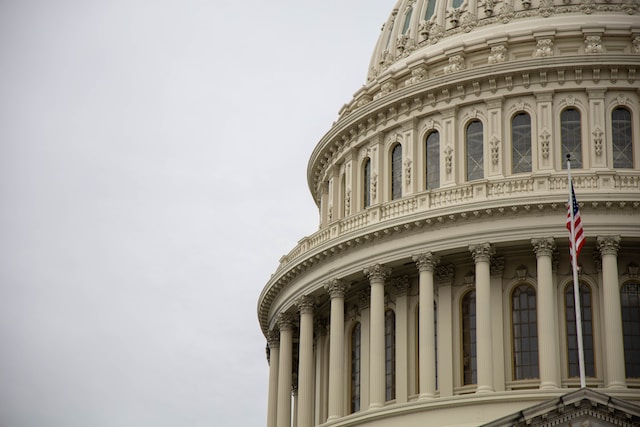In the ever-evolving labyrinth of federal employment, the term ‘career tenure’ often surfaces but is seldom thoroughly understood. An integral part of public administration, career tenure profoundly influences the dynamics of governmental operations, adding a layer of stability and efficiency to the public service.
As this crucial concept often lacks a comprehensive explanation, we aim to delve into its depths, examining its meaning, significance, and implications.
Whether you’re an aspiring civil servant or a seasoned federal employee, a deeper understanding of career tenure will provide a unique perspective on your profession’s realities and enhance your capacity to navigate the federal employment landscape.
What is Career Tenure in the Federal Government?
In its simplest form, career tenure refers to the employment status that a federal government employee attains after successfully completing a designated probationary period. This period typically lasts a year or two, allowing for the evaluation of the employee’s competence and fit within their role.
Securing career tenure essentially means the employee has demonstrated the required proficiency and adaptability and henceforth enjoys increased job security and certain protections against arbitrary dismissal. This status is synonymous with career-conditional employment, which evolves into career tenure after a certain period of satisfactory service.
It’s important to note that career tenure is not the same as political appointment. While political appointees may face the risk of being replaced with every new administration, career civil servants with tenure enjoy a level of job security and independence that ensures the continuity of government functions, irrespective of political changes.
Career tenure is often linked with the concept of meritocracy, as it is granted based on the performance and abilities of an individual, fostering an environment that rewards hard work and competence.
This system also protects employees from undue political influence, reinforcing the impartiality of public service.

The Significance of Career Tenure
Understanding the role and importance of career tenure within the federal government framework helps to appreciate the stability it imparts to public service.
Enhancing Job Security
Firstly, career tenure offers job security, crucial for employees’ morale, productivity, and loyalty. It provides a sense of stability and predictability, allowing employees to focus on their roles without the constant fear of losing their jobs.
Upholding Merit Principles
Career tenure also reinforces the merit principles enshrined in the U.S. civil service system. These principles include fair competition, equal opportunity, and protection against political influence. The career tenure system ensures that employees are selected and promoted based on their abilities and performance, fostering an environment of meritocracy.
Safeguarding Against Political Interference
Importantly, career tenure shields employees from undue political interference. Unlike political appointees who may face the risk of being replaced with every new administration, career civil servants enjoy a level of independence. This independence maintains the continuity of government functions, regardless of changes in political leadership.
The Implications of Career Tenure
While significantly beneficial, career tenure in the federal government carries certain implications that impact both the employee and the public service sector. Understanding these effects is important to navigate the public service landscape effectively.
Balancing Stability and Flexibility
One of the primary benefits of career tenure is the stability it provides. However, this stability also brings about an inherent challenge: balancing it with the need for flexibility. In a rapidly evolving world, the public sector must constantly adapt and innovate to meet societal needs effectively.
Having a workforce majorly composed of tenured employees can sometimes slow down this adaptability due to their established routines and methods of work. Thus, ensuring this balance is essential for maintaining the efficiency and relevance of public service.
Ensuring Accountability
Career tenure provides a safety net against arbitrary dismissal, which is essential in protecting employees from political influence and maintaining the impartiality of public service.
However, this protection should not act as a shield for those who underperform or engage in misconduct.
Therefore, ensuring that the system fosters accountability and job security is crucial. This way, employees are encouraged to maintain high performance and ethical conduct standards, contributing to a more effective and reputable public service.
Managing Public Perception
Finally, the concept of career tenure has implications for public perception. On the one hand, the job security and stability associated with tenure can make federal government employment an attractive career choice.
On the other hand, if the public perceives that tenured employees are immune to repercussions for poor performance or unethical behaviour, it can lead to diminished trust in public institutions.
Therefore, managing this perception through transparency and effective communication about how accountability is maintained is vital.

Conclusion
In sum, the concept of career tenure serves as a cornerstone in the federal government’s structure, offering a foundation of stability and continuity within the ever-shifting political landscape. Its role in bolstering job security, upholding merit principles, and safeguarding against political interference cannot be overstated.
However, its implications – balancing stability with flexibility, the urgency of ensuring accountability, and managing public perception – offer challenges that require thoughtful navigation.
As public administration continues to evolve, comprehending the intricacies of career tenure becomes increasingly significant. This understanding serves as a compass for aspiring civil servants and current federal employees, guiding their professional journeys through the intricate federal employment landscape.
For the wider public, it fosters a deeper appreciation of the checks and balances inherent in our government structure.
Ultimately, when harnessed effectively, the career tenure system can drive public service forward, fostering a robust, efficient, and trusted federal government dedicated to serving the public good.



